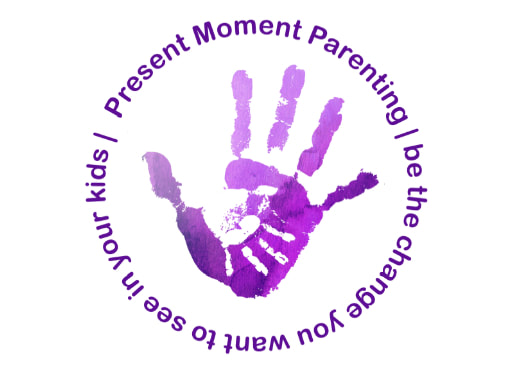| This week I have a scenario from a mother of three who is worried about her son's reactions to her emotions, seeming to want her to be happy all the time. Here's what she says... I am a mother of 3 kids, aged almost 4, 2.5 and 9 months. My oldest son, the almost 4 year old, is, "a highly sensitive boy". (I don't tell him that he is sensitive, this is just an observation). This is my concern... |
Transcript of the podcast...
He often asks "Are you happy, mom?" I may be upset/angry/frustrated/disappointed or just having a down moment and to any of these things - where I'm not overtly happy - he asks "Are you happy mom?...Are you happy mom?" So he seems very concerned when I'm anything other than happy or he senses I'm anything other than happy.
I realize kids don't always have to see us happy but I also don't want him to carry my load. I know I need to manage my own moods but I notice that he is particularly concerned with my happiness.
My son asks this when I am, for example, frustrated with something the nanny did or sometimes something my son himself did. So it's not only that he asks this question in relation to his own behaviour - anything that gets to me makes him ask repeatedly "are you happy mom?"
Today he drew with markers on his trousers, then came to me and said "don't say anything mom" and then "are you happy?" I responded to the "provocation/test" saying "ok I see you're not ready to use the markers yet, we'll put them away for now". I wasn't sure how I felt about the markers on his trousers, not necessarily unhappy, maybe more disappointed but I didn't mention that because I don't know what to respond to this question.
I don't know how to respond to this behaviour. I'm concerned that he gets distressed when I'm anything but overtly happy.
Most children are sensitive and the more intelligent they are the more sensitive they appear as they're able to understand the deeper nuances of being alive... part of which is understanding other people's emotions and the effect we can have on others. Sensitivity is a wonderful trait that allows us access to more of our environment, opens us up to more learning and can lead to greater depths of both intimacy and empathy.
We do need to be careful, though, of any labels we may apply to our children. Even if we don't say these out loud, just having the internal label changes the way we see and therefore respond to the child. We're always filtering the world (and other people) to avoid sensory overwhelm. Labels change the way we filter people by telling our subconscious minds not to bother including any information in our awareness that would counter the label. A label of ‘sensitive’ may mean that we treat the child more carefully, bubble-wrapping them from experiencing hardships that we don't think they can handle. This in turn makes them doubt their own ability to handle challenges which in turn makes them more sensitive to future issues and so the self-fulfilling prophecy of the label plays out.
I think you'll find that if you're honest about your emotions with your son that he not only has the capacity to deal with this, but that he actually might be less anxious than not knowing your true feelings. Children are very adept at knowing when what we say and what we really feel are not congruent. And this makes them uncomfortable. It is like a lie is going on and they have to figure it out to feel ok in the world again.
I hear your concern about burdening him with your troubles, but if you own the emotions then you are not making him responsible for making you happy again. As long as you always start with "I feel" and not "you make me feel" or "nanny makes me feel" then you'll be alright. If he asks if you're happy, and you're not, then tell him honestly: "Right now I'm not happy... I'm. .." Then be specific about how you feel and you can also tell him how YOU are going to handle that. This teaches children emotional intelligence. If you're only ever happy, sad or mad there's not a lot you can do about that. Instead of saying you're sad you could say I'm feeling lonely or tired or bored.
Then you can tell him what you're doing about it. “I'm not feeling happy right now. I'm feeling lonely. So I'm going to call a friend. I'm not feeling happy right now I'm feeling irritated so I'm going to take a time out and do some breathing.”
See how you're taking responsibility? Not giving him any burdens just letting him in on your private internal world. That is ultimately what a relationship is... a connection between my inner world and your inner world. It's vulnerable. It's not always happy. But it is real. And this is what he’s trying to connect with when he asks how you’re feeling.
We're not always happy and nor should we be. I see happiness as flatlining. Our lives are made richer by all the ups and downs. Think about watching a brilliant movie. What makes us say that a movie is good? When it moves us emotionally. When we leave the cinema having laughed and cried and hated and gasped and felt real fear. Happiness is watching a movie with the soundtrack off so we can't have our emotions pulled on by the violins!
Now if your son has done something that you find upsetting, then you can also show him how he can make amends. Often to do this you need to identify your own need that isn't being met (again taking responsibility for your own emotions). I like to use the four part process outlined in Marshall Rosenberg’s Nonviolent Communication…
It works like this… first identify your own emotion and the need that is fuelling that emotion. Then express that to the other person, including what you would like them to do to help you to rectify the situation.
When A I feel B because I need C. Could I please now request D.
In the scenario you mentioned that might look like this:
When I see markers on trousers I feel disappointed because I need the clothes that I buy to be respected. Please could you draw only on paper.
You're not hiding your disappointment. But you are owning that feeling and why you have it. And you're helping him to help you. Our kids do like to see us happy and if we have a good relationship with them they'll go out of their way to help us meet our needs just as we do for them. But they, like the other people in our lives, need some guidance. None of us are mind readers.
Remember though that meeting your needs is a request not a demand. He may still draw on his trousers... and I do expect 4 year olds to test limits over and over. Then you can definitely do as you've done and take the markers away saying, “I see you're not ready to draw on paper. I need to respect my own need for clean clothes so I'm going to put these away.” Respectful boundaries. You meet your own need without blaming or shaming him.
The same process for your nanny. If she's done something that interferes with a need of yours do exactly the same thing. Let your son see this too. We then teach our children respect for ourselves, our things, other people, and all feelings, whilst simultaneously allowing ourselves to be authentic and experience the full spectrum of amazing emotions that life has to offer.
I hope that helps. If you have further questions, please do feel free to send them through to me.
I wish you and your family an emotionally fulfilling life.
He often asks "Are you happy, mom?" I may be upset/angry/frustrated/disappointed or just having a down moment and to any of these things - where I'm not overtly happy - he asks "Are you happy mom?...Are you happy mom?" So he seems very concerned when I'm anything other than happy or he senses I'm anything other than happy.
I realize kids don't always have to see us happy but I also don't want him to carry my load. I know I need to manage my own moods but I notice that he is particularly concerned with my happiness.
My son asks this when I am, for example, frustrated with something the nanny did or sometimes something my son himself did. So it's not only that he asks this question in relation to his own behaviour - anything that gets to me makes him ask repeatedly "are you happy mom?"
Today he drew with markers on his trousers, then came to me and said "don't say anything mom" and then "are you happy?" I responded to the "provocation/test" saying "ok I see you're not ready to use the markers yet, we'll put them away for now". I wasn't sure how I felt about the markers on his trousers, not necessarily unhappy, maybe more disappointed but I didn't mention that because I don't know what to respond to this question.
I don't know how to respond to this behaviour. I'm concerned that he gets distressed when I'm anything but overtly happy.
Most children are sensitive and the more intelligent they are the more sensitive they appear as they're able to understand the deeper nuances of being alive... part of which is understanding other people's emotions and the effect we can have on others. Sensitivity is a wonderful trait that allows us access to more of our environment, opens us up to more learning and can lead to greater depths of both intimacy and empathy.
We do need to be careful, though, of any labels we may apply to our children. Even if we don't say these out loud, just having the internal label changes the way we see and therefore respond to the child. We're always filtering the world (and other people) to avoid sensory overwhelm. Labels change the way we filter people by telling our subconscious minds not to bother including any information in our awareness that would counter the label. A label of ‘sensitive’ may mean that we treat the child more carefully, bubble-wrapping them from experiencing hardships that we don't think they can handle. This in turn makes them doubt their own ability to handle challenges which in turn makes them more sensitive to future issues and so the self-fulfilling prophecy of the label plays out.
I think you'll find that if you're honest about your emotions with your son that he not only has the capacity to deal with this, but that he actually might be less anxious than not knowing your true feelings. Children are very adept at knowing when what we say and what we really feel are not congruent. And this makes them uncomfortable. It is like a lie is going on and they have to figure it out to feel ok in the world again.
I hear your concern about burdening him with your troubles, but if you own the emotions then you are not making him responsible for making you happy again. As long as you always start with "I feel" and not "you make me feel" or "nanny makes me feel" then you'll be alright. If he asks if you're happy, and you're not, then tell him honestly: "Right now I'm not happy... I'm. .." Then be specific about how you feel and you can also tell him how YOU are going to handle that. This teaches children emotional intelligence. If you're only ever happy, sad or mad there's not a lot you can do about that. Instead of saying you're sad you could say I'm feeling lonely or tired or bored.
Then you can tell him what you're doing about it. “I'm not feeling happy right now. I'm feeling lonely. So I'm going to call a friend. I'm not feeling happy right now I'm feeling irritated so I'm going to take a time out and do some breathing.”
See how you're taking responsibility? Not giving him any burdens just letting him in on your private internal world. That is ultimately what a relationship is... a connection between my inner world and your inner world. It's vulnerable. It's not always happy. But it is real. And this is what he’s trying to connect with when he asks how you’re feeling.
We're not always happy and nor should we be. I see happiness as flatlining. Our lives are made richer by all the ups and downs. Think about watching a brilliant movie. What makes us say that a movie is good? When it moves us emotionally. When we leave the cinema having laughed and cried and hated and gasped and felt real fear. Happiness is watching a movie with the soundtrack off so we can't have our emotions pulled on by the violins!
Now if your son has done something that you find upsetting, then you can also show him how he can make amends. Often to do this you need to identify your own need that isn't being met (again taking responsibility for your own emotions). I like to use the four part process outlined in Marshall Rosenberg’s Nonviolent Communication…
It works like this… first identify your own emotion and the need that is fuelling that emotion. Then express that to the other person, including what you would like them to do to help you to rectify the situation.
When A I feel B because I need C. Could I please now request D.
In the scenario you mentioned that might look like this:
When I see markers on trousers I feel disappointed because I need the clothes that I buy to be respected. Please could you draw only on paper.
You're not hiding your disappointment. But you are owning that feeling and why you have it. And you're helping him to help you. Our kids do like to see us happy and if we have a good relationship with them they'll go out of their way to help us meet our needs just as we do for them. But they, like the other people in our lives, need some guidance. None of us are mind readers.
Remember though that meeting your needs is a request not a demand. He may still draw on his trousers... and I do expect 4 year olds to test limits over and over. Then you can definitely do as you've done and take the markers away saying, “I see you're not ready to draw on paper. I need to respect my own need for clean clothes so I'm going to put these away.” Respectful boundaries. You meet your own need without blaming or shaming him.
The same process for your nanny. If she's done something that interferes with a need of yours do exactly the same thing. Let your son see this too. We then teach our children respect for ourselves, our things, other people, and all feelings, whilst simultaneously allowing ourselves to be authentic and experience the full spectrum of amazing emotions that life has to offer.
I hope that helps. If you have further questions, please do feel free to send them through to me.
I wish you and your family an emotionally fulfilling life.
If you have a parenting question you would like answered, please email me with "Podcast Question" in the subject line. All questions will be answered confidentially.
If you enjoyed this podcast, you may also enjoy these blog posts:





 RSS Feed
RSS Feed